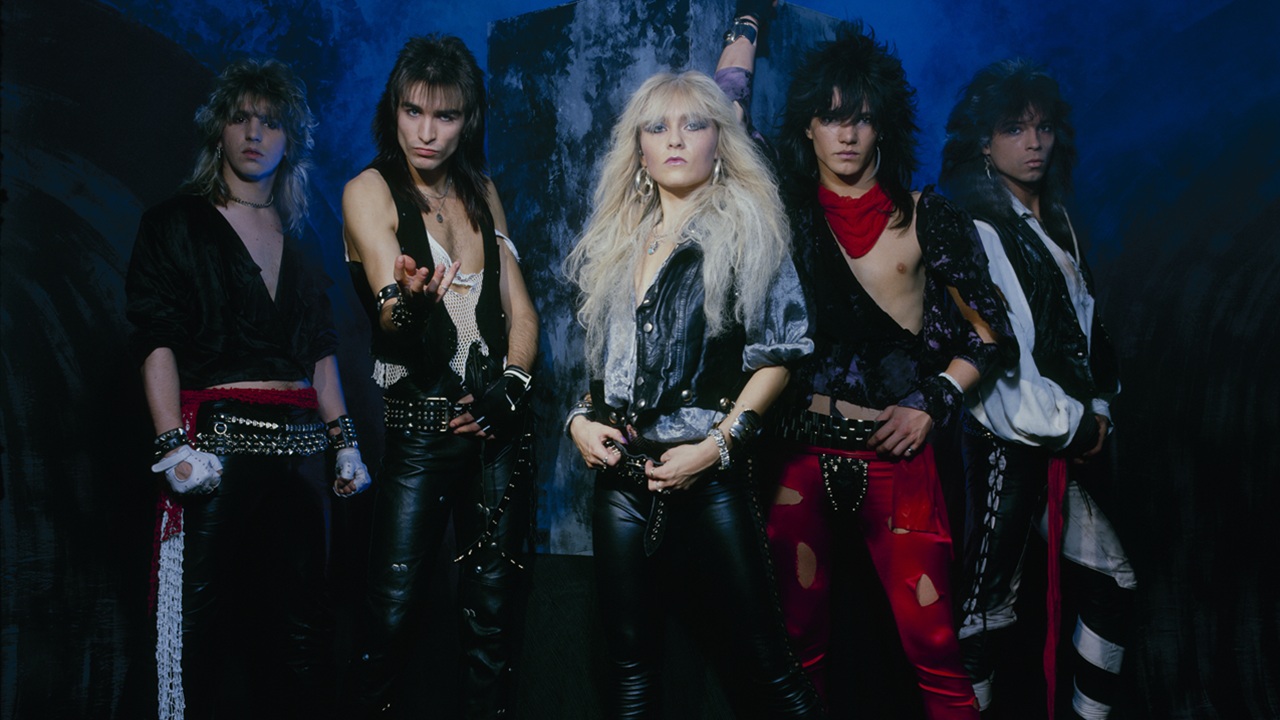“Metallica’s best years are ahead of us”: 12 months in the life of metal’s biggest band
Rehab, cancelled shows, a global pandemic and the long-awaited release of S&M2 – Lars, Kirk and Robert look back on 12 rollercoaster months in the life of Metallica
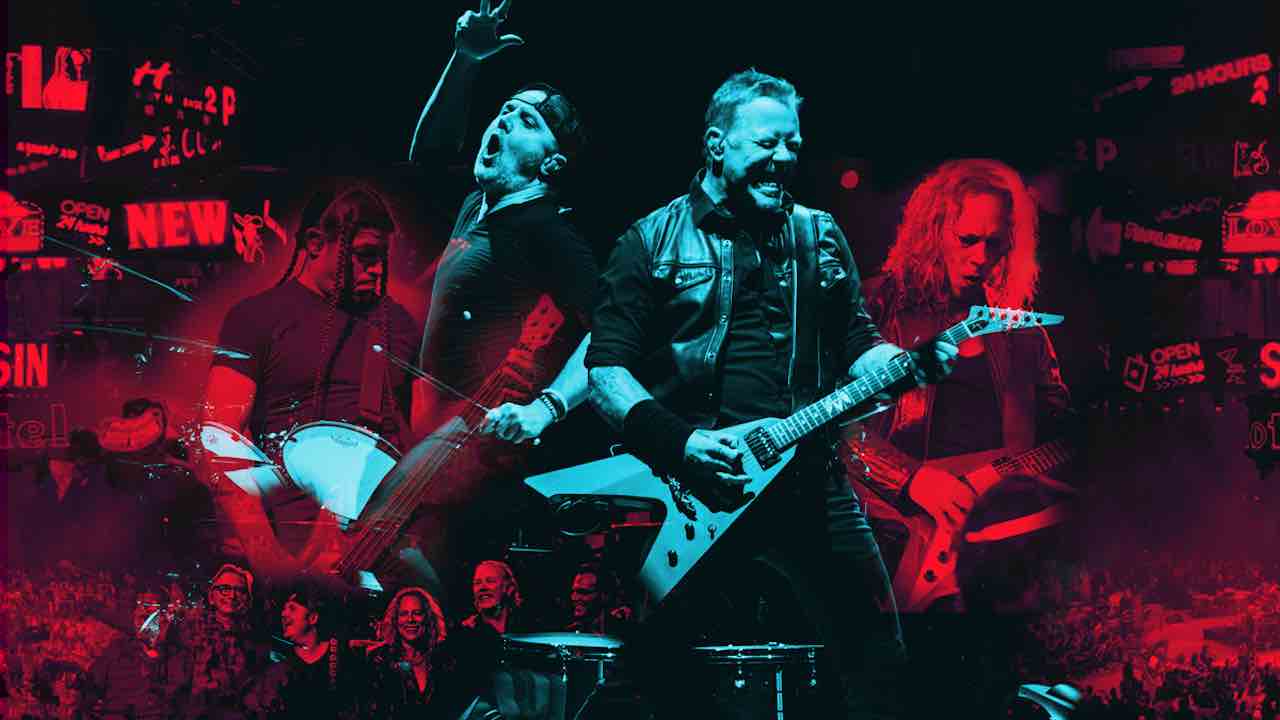
“That tour was just incredible for us. Sold- out stadiums, we had such a good time, so much fun. Really, it was amazing. Then, literally two days after we got home, we got the message.”
You can practically hear Robert Trujillo shaking his head in disbelief as he recounts the moment that Metallica found out James Hetfield was returning to rehab. It was in September 2019, a matter of days after the band had just pulled off two of the most epic shows in their near-40-year history: S&M2, a spectacular double-header of Metallica gigs backed by the San Francisco Symphony, taking place over two nights at the city’s newly opened Chase Center. The shows were spectacular. They were a triumph. They were even more surprising than the original S&M show 20 years earlier. Unbeknownst to the band, however, they’d also mark the final occasions Metallica would share a stage for quite some time.
Bassist Rob, lead guitarist Kirk Hammett and drummer/band mastermind Lars Ulrich all join Hammer today down phonelines from their respective homes dotted across California. They’re doing press to promote S&M2’s long-awaited home release, repeatedly delayed due to complications arising from the COVID-19 pandemic. For them, though, all plans were derailed a few months earlier than the rest of the world's. On September 28, it was announced that Metallica were pulling their scheduled stadium shows in Australia and New Zealand – the latest in a serious of victory laps for the monstrously successful Hardwired… To Self-Destruct era – so that James could “re-enter a treatment program to work on his recovery again.” For fans, it was a real shock, a harsh reminder that even metal’s very biggest band weren’t invincible. For Metallica, it was a sharp and sudden loss of momentum, and an emotional reality check.
- The best metal guitars 2020: Get ready to shred with our essential list
- The best Metallica merch 2020: amazing gifts for the Metallica fan in your life
- How to sound like Metallica's James Hetfield
- Loudest Bluetooth speakers: the best speakers for maximum noise
“It was very emotional for all of us,” admits Kirk. “Whenever something happens to a bandmember like this, it’s so deeply unsettling. It comes as a shock, you know? You have to do a bit of scrambling just to cover some ground.”
“We really didn’t see it coming,” agrees Rob. “James seemed like he was fine, but then you look back and you try to analyse the situation over time and see where there were red flags. Being on the road can be very challenging, and I’d imagine for James, to get up there in front of all those people and have to be ‘on’… meanwhile, your family’s not with you, all these things are going on, it builds up, and the pressure of that… I can imagine it’s a lot.”
Lars Ulrich is slightly less forthcoming about his reactions to the news about James – he’s unusually short when we ask when the band first knew of any issues – but he does admit that there remains a certain vulnerability at the heart of Metallica that, despite appearances, has never really gone away.
“I’m conscious of the fragility of it all the time,” he reveals. “I think we wear our human side proudly. I think we’ve always been pretty comfortable with sharing our vulnerabilities. I guess just showing our human side, being truthful, that’s always been part of Metallica, so the events of the fall of 2019 were a very organic and pure extension of that.”
Sign up below to get the latest from Metal Hammer, plus exclusive special offers, direct to your inbox!
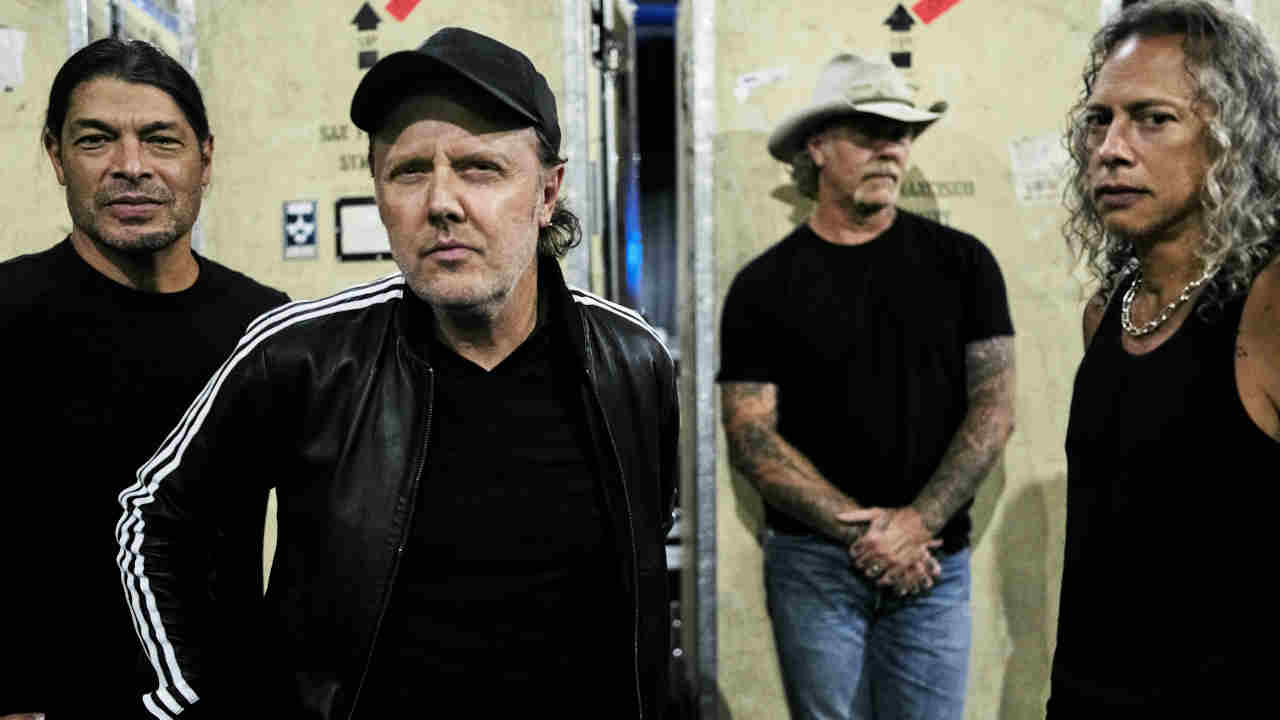
This, in a nutshell, sums up what has made Metallica one of the most enduring bands in the history of rock music. Beyond the genre-defining songs and the huge live shows, the controversies and the wild experiments, there’s always been, at its core, a band unafraid to wear their hearts on their sleeves, “warts and all”, in the words of Lars, consequences be damned. Whether it was the devastating loss of Cliff Burton, the pre-St. Anger implosion so mesmerisingly captured on Some Kind Of Monster or, y’know, That Whole Dave Mustaine Thing, it feels like we know Metallica inside out because, through all the trials and tribulations, they’ve held absolutely nothing back. From us, or from each other.
“I’m an only child, so these guys have been in my life longer than anybody else other than my parents,” says Lars. “We know what the MO is. As you see your brothers, your friends, your partners go through ups and downs for decades, you know what the process becomes.”
In this case, the process was Metallica downing tools, calling off those aforementioned shows and hitting pause for a little while so their frontman could recover. And they knew that it was a process that’d take however long James needed.
“I’ve been in a situation where nothing’s going right for me, I just need to stop doing everything that I’m doing and check myself in,” admits Kirk, who notes that he has been sober himself for “over five and a half years now.”
“I’m familiar with the emotional process and the therapeutic process that you go through,” he adds. “When someone needs help, I’m not one to judge, because I’ve been through it myself. I’ve been there big time, and you just have to help your fellow human being.”
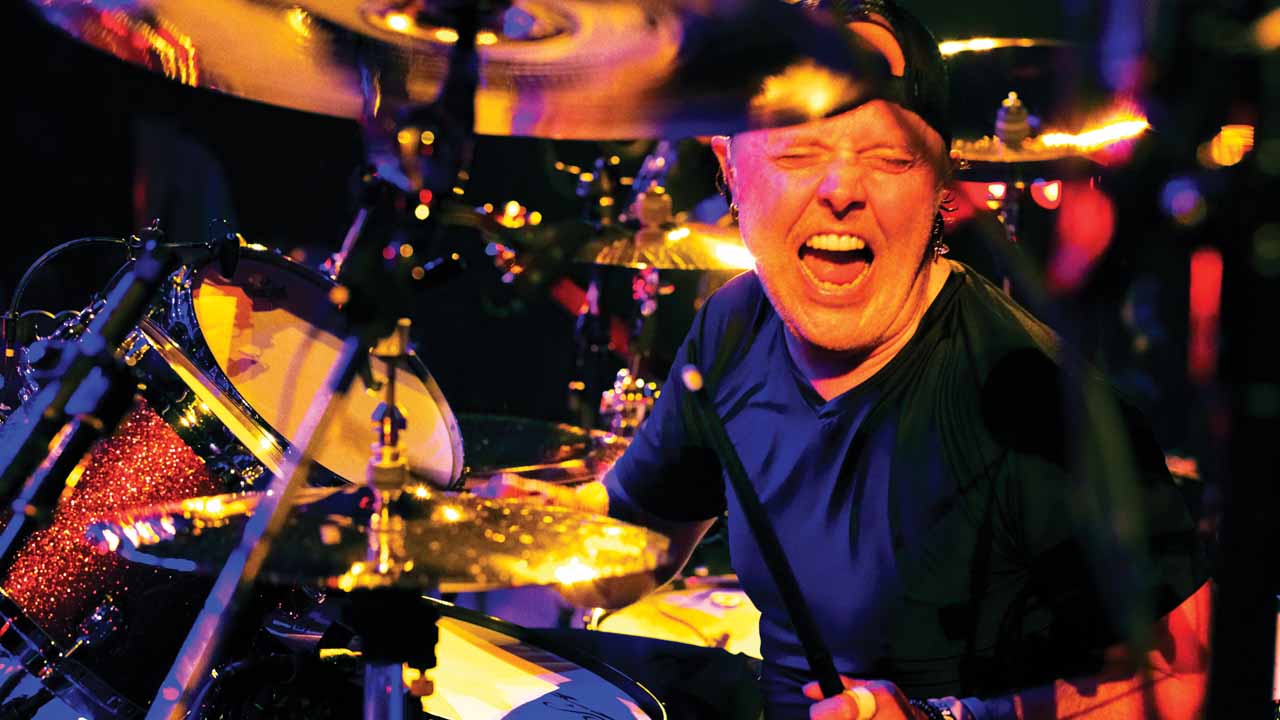
Of course, we all know what happened next – because it happened to all of us. What was likely to have only been a break of a few months ended up becoming a total shutdown as Metallica, along with most of planet Earth, had to cancel all foreseeable plans completely. Just as it seemed like things in the Metallica camp could have started to return to some kind of normality – James made his first public appearance since entering rehab at an LA car show in late January – one of metal’s busiest bands were suddenly forced into a state of limbo. No tours. No one-off shows. No rehearsals. No nothin’.
As the COVID-19 pandemic continued to spread across the globe and their home country became an epicentre for the crisis, it became increasingly clear that there would be no immediate roadmap back to continuing the Hardwired… cycle. While the band were happy to spend some unexpected bonus time with their families – Lars jokes that getting to hang with his two sons reminds him of “back in the day when I would drive them to school – the door’s locked, no one’s going anywhere” – they wanted to make sure Metallica itself was still staying alive, staying active and, most importantly, staying connected with their fans. In late March, the band launched ‘Metallica Mondays’, a new, weekly event that’d see old Metallica shows posted in full online, sometimes complete with a bonus introduction from Lars. In May, they posted a brand new, acoustic version of Blackened, recorded individually at their home studios. It was all a welcome distraction for metalheads facing a summer without any gigs or festivals. And yet, inevitably, the age-old question that has kept Metallica going all these years cropped up again: what comes next?
“Other than connecting with our fans in whatever opportunity possible, new music is really what fuels everybody around here,” says Lars playfully. So then, are we going to get a new Metallica album sooner than we might have expected?
“I’m just speculating,” begins Kirk. “But if the touring world doesn’t start functioning in the same way that it used to, then I think the idea is to stay indoors and start working on songs, start to record. I think that’s probably the safest, most sensible thing for us to do!”
If that sounds like Metallica haven’t made any actual inroads into album number 11 yet, don’t be fooled: there’s new music being made alright, an absolute shit-ton of it, in fact.
“There’s a lot of material,” laughs Kirk. “I know I have tons, because I totally overcompensated. You know, last time around, it was a real shock to my system losing all those musical ideas [Kirk lost a phone with more than 300 pieces of music on it during the creative process for Hardwired…]. So, I was very determined to try and make up for lost time. I also felt that, creatively, I have so much more to offer this time around.”
This last point is an interesting one. By all accounts, Hardwired… was very much The James And Lars Show, with Kirk and Rob’s input on the creative process relatively minimal compared to years gone by. Kirk told Hammer back in 2016 that it was a situation he accepted, but not without a little frustration. If, however, the early signs are anything to go by, the next Metallica album will indeed be a decidedly more cooperative affair.
“I’m not gonna speak on behalf of the other guys, but to me, it feels like this could be a very collaborative [writing process],” offers Rob. “And for me personally, I love that. I love that we are in that head space to be more collaborative, and I think that’s very exciting for where we’re at now, the journey we’re about to take, the fact that those doors are opening like that.”
“It’s taking a couple of months, literally, for me to go through all [my ideas],” adds Kirk. “I’ve got a wealth of material, and so, at any given point when we all decide, ‘OK, let’s start formulating a schedule to start writing songs and recording it.’ I’m ready. I’m there, from day one.”
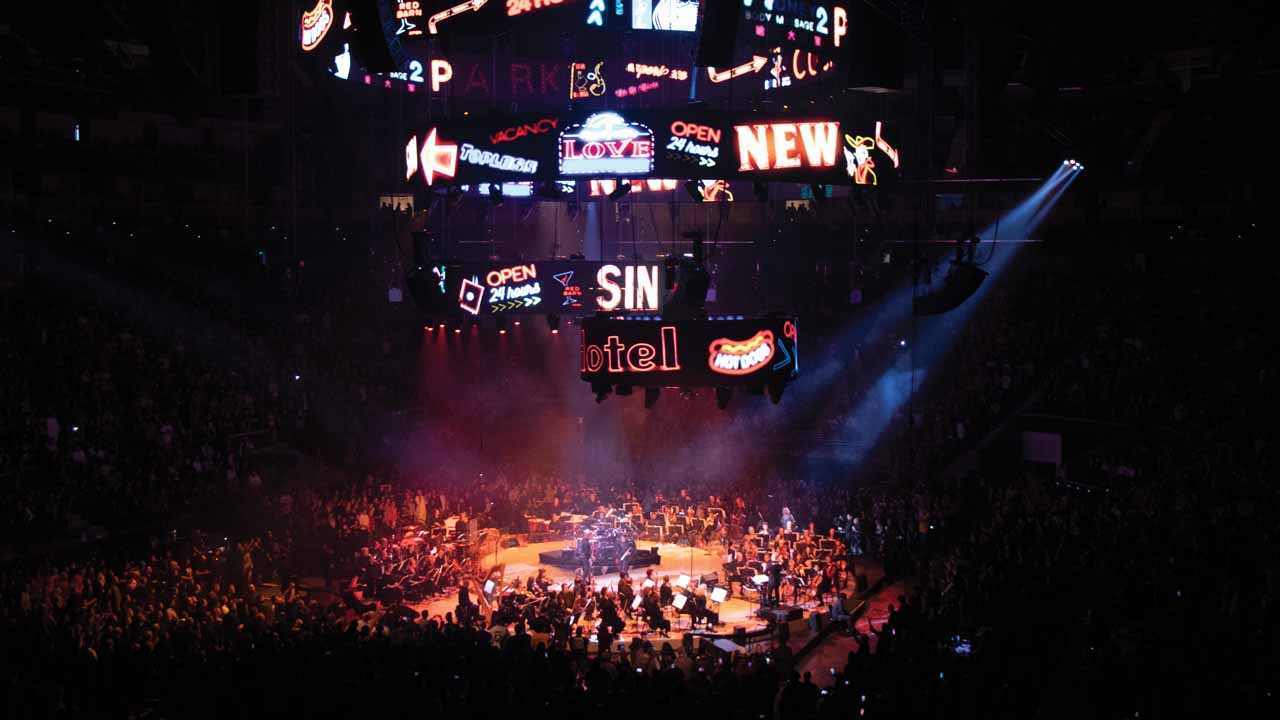
Kirk isn’t kidding about the overflow of ideas, either. He enthusiastically tells us he has 600 riffs in the bank right now (thankfully not all stored on one phone), while Rob confirms that he hasn’t been stingy with sharing them with the rest of the band.
“Kirk has so many ideas,” laughs the bassist. “It’s funny because sometimes it’s literally him in the kitchen and he’s cooking, and at the same time he’s playing you a riff, or you’re sitting on the toilet and he’s playing you some ideas. But when we started to understand that [the lockdown] was gonna happen, it was like, ‘Hey, let’s be creative’, you know? Let’s just get on it. A lot of times, when there’s a band that’s been around as long as Metallica has, you find that one of the biggest problems is, ‘Man I can’t come up with a riff, I can’t come up with any good lyrics, it’s just harder to write songs’, but that just doesn’t seem to be the problem with us. Not taking anything away from any other bands, but sometimes our worst riff might be another band’s A-List riff.”
So, it seems Kirk and Rob are ready to roll, but what of Lars? Metallica’s de facto leader is typically considered when asked about exactly where we’re at with a new album, but he does concede that there is now definitely forward momentum, and it’s feeling positive.
“Getting a chance to work on new music and throw ideas around is incredible,” he says. “It’s always exciting. There’s lots of ideas going back and forth. There was a real connection with the last record – the fans, the ways the planets aligned, the energy of the universe, whatever – and I think that energy is still present, inherent, and we feel really good about what’s next. There’s some great riffs, some great ideas, and it’ll all take shape and at some point, when it’s safe and we’re all comfortable with it, we’ll all be in the same space and off we go.”
While current circumstances mean distractions are at an all-time low, in the last 15 years Metallica have become notorious for ducking out of the studio for extracurricular activities, be it mini-tours (Escape From The Studio 06 and Sick Of The Studio 07), time-consuming projects (hello Orion Fest, Through The Never movie and Lulu) or just straight-up batshit ideas (playing Antarctica, because why the fuck not?). It’s that exact mixture of spontaneity and ambitious thinking that put them atop metal’s pedestal in the first place, but it does also ultimately beg some questions. Throwing ideas around is one thing, but three studio albums in 20 years isn’t the most prolific return in heavy music, and the shadow of Some Kind Of Monster still looms large. Do Metallica even enjoy the actual process of making a new record any more?
“Yeah! Absolutely!” Lars shoots back. “I love it! Especially the last two records, they bode well for the future.”
So you’re not concerned about any potential conflict once you all actually get into a studio together?
“As human beings get older, you become more respectful,” he replies. “You understand the word ‘empathy’, all these types of things you would never catch yourself acknowledging when you’re 22 years old and full of spunk and crazy, manic, narcissistic energy. So as you sit there in your 50s, it’s like, ‘I don’t need to go down to the studio and fucking battle.’ That’s not what I wanna do. I wanna connect with the rest of the guys in the band, I wanna push some ideas forward and yeah, I enjoy that. I enjoy the process of making records and making new music. But if we were to go into the studio and spend every day in the studio for a year, I don’t think that process would work as well for us.”

If the future is looking positive for Metallica, then the present, too, gives us reason to be cheerful. The release of S&M2 may have taken a while to get here, but it was certainly worth the wait. It is, quite simply, fantastic: both a celebration of Metallica’s past and a testament to their refusal to wallow in it, always looking for ways to do things differently and change up the formula, even if just a little. Fresher tracks like Moth Into Flame and Halo On Fire sound humongous backed by the San Francisco Symphony, while the likes of The Outlaw Torn, The Unforgiven III and a startling (Anesthesia) Pulling Teeth are all given entirely new leases of life [see Settle The Score, right]. While it wasn’t originally intended as the exclamation point on that particular chapter of Metallica’s career, it seems almost fitting that it wrapped up their year – the latest big project in a career stuffed with them.
“It was an incredible couple of days,” says Lars now. “An incredible weekend in San Francisco, an incredible milestone. I guess these S&M experiences represent a side of Metallica where we try to go outside of our comfort zone, embrace other forces and go into a different world. The bandmembers were in a much more receptive place than 20 years ago, and I think we were much more comfortable with casting the net wider and being more adventurous.”
“I had a lot of fun,” adds Kirk. “I had to prepare myself physically for this show. Classical musicians… you can basically put any piece of music in front of a classical musician and they will be able to [play] it in real time, and that’s extremely difficult to do. So I felt like I had to at least try to meet them on that level of musicianship. In retrospect, I thought we did pretty well!”
“It was like you were on a big magic carpet,” suggests Rob, who was having his first dabble with the S&M experience. “You had all this energy around you; you could just feel that the musicians were enjoying the experience, and then the fans are amazed by what they’re experiencing because some of those people have never experienced an orchestra before, and then some of the orchestra people have never experienced a rock band. You have all these elements to create a very special evening.”
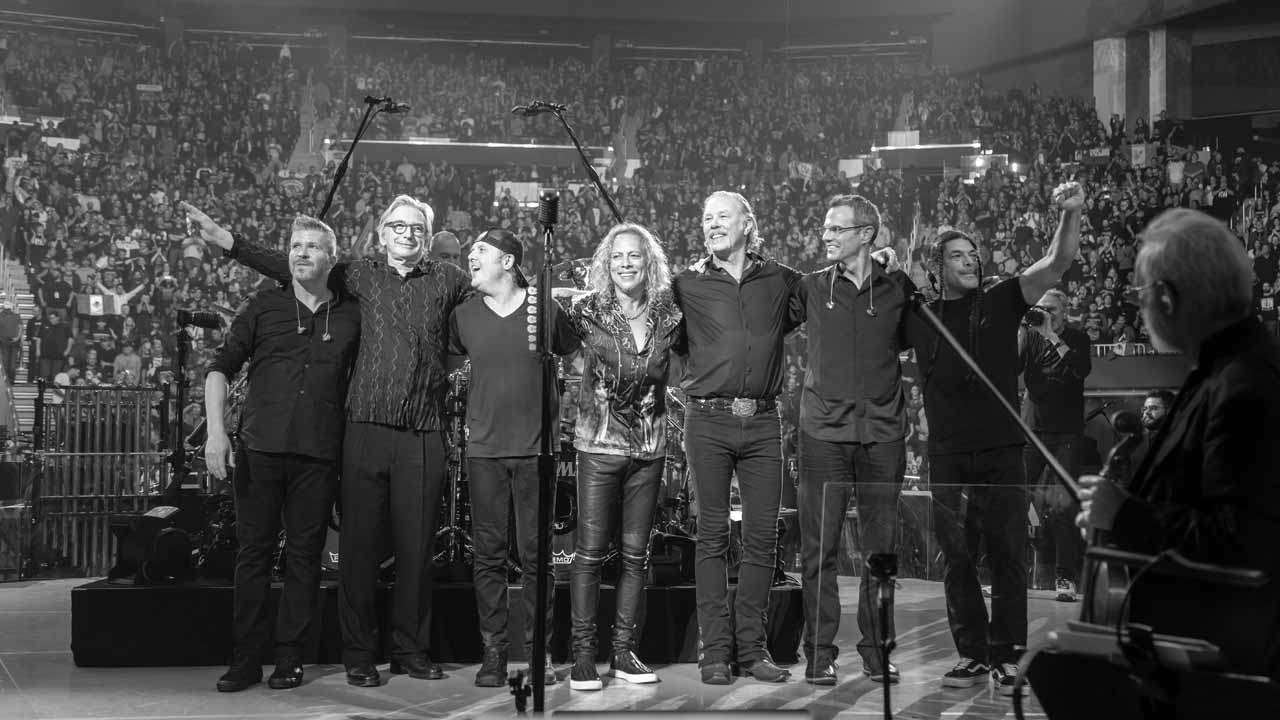
For a band who have weathered more criticism, more debate and more divisiveness than any other in metal, it seems, against all odds, like the stars are very much aligned for Metallica right now. In the last four years they’ve made their best album in decades, put on their most critically acclaimed shows in years and capped it all off with an anniversary event that just… made… everyone feel good. No drama. No controversy. No bullshit. If anything, James’s return to rehab that same month only amplified the general feeling of goodwill that they’ve clawed back in recent times. Put short: it’s pretty good to be in Metallica right now. And, with all Four Horsemen now back in action and on the same page – “James is doing great,” Rob tells us – they have plenty more left in the tank yet.
“We can’t physically be together, but we’re exercising our creativity amongst each other and sharing new ideas and building for the next round,” Rob adds. “It can be therapeutic, you know? Creativity and music is very healing and that’s been a positive for all of us. For James, it’s been really important.”
“We check in with each other once a week and make sure everyone’s doing well and healthy, everyone’s moving along, and we’re trying to move forward,” says Kirk. “Once the air clears and it’s safe and healthy for everyone, we’ll be prepared to step up.”
For Lars, this latest, most curious situation has simply been another unique chapter for a band who have no two pages alike. And he wouldn’t have it any other way.
“As soon as it’s safe and as soon as it can work practically, then we’ll be back out there doing what we do,” he confirms. “Metallica is a life choice. It’s not something that we weave in and out of. I like Metallica being what I do. I really enjoy it, and everybody else feels the same way. And I like to spend as much time in the future; I always look ahead.” We go to finish up the call before he stops us and adds: “We’re just getting started, by the way. We still have our best years ahead of us.”
He says it with the glimmer of a smirk in his voice, but you know what? If the last few years are anything to go by, you can’t help but think Lars isn’t joking at all.
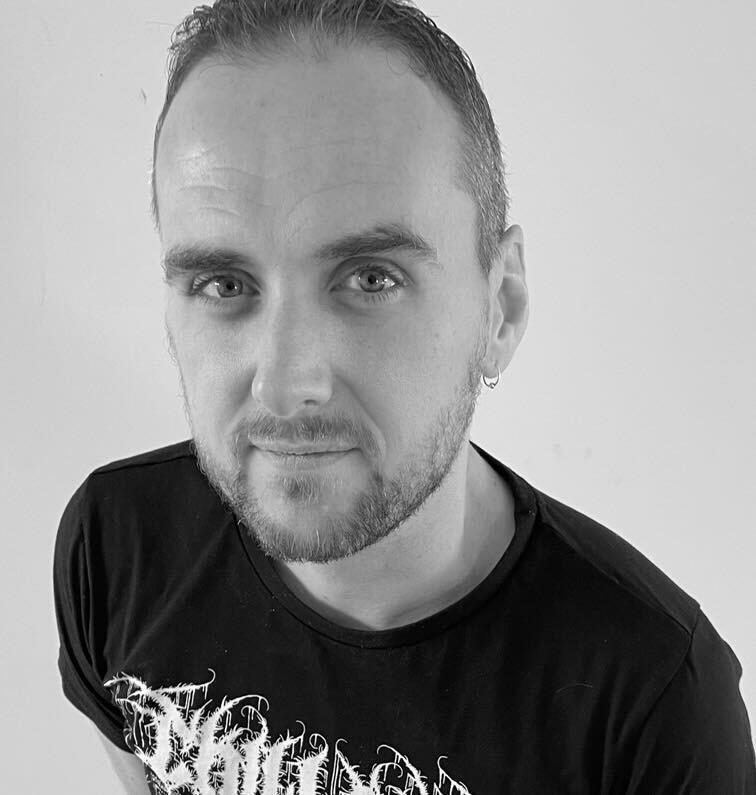
Merlin was promoted to Executive Editor of Louder in early 2022, following over ten years working at Metal Hammer. While there, he served as Online Editor and Deputy Editor, before being promoted to Editor in 2016. Before joining Metal Hammer, Merlin worked as Associate Editor at Terrorizer Magazine and has written for Classic Rock, Rock Sound, eFestivals and others. Across his career he has interviewed legends including Ozzy Osbourne, Lemmy, Metallica, Iron Maiden (including getting a trip on Ed Force One courtesy of Bruce Dickinson), Guns N' Roses, KISS, Slipknot, System Of A Down and Meat Loaf. He has also presented and produced the Metal Hammer Podcast, presented the Metal Hammer Radio Show and is probably responsible for 90% of all nu metal-related content making it onto the site.
